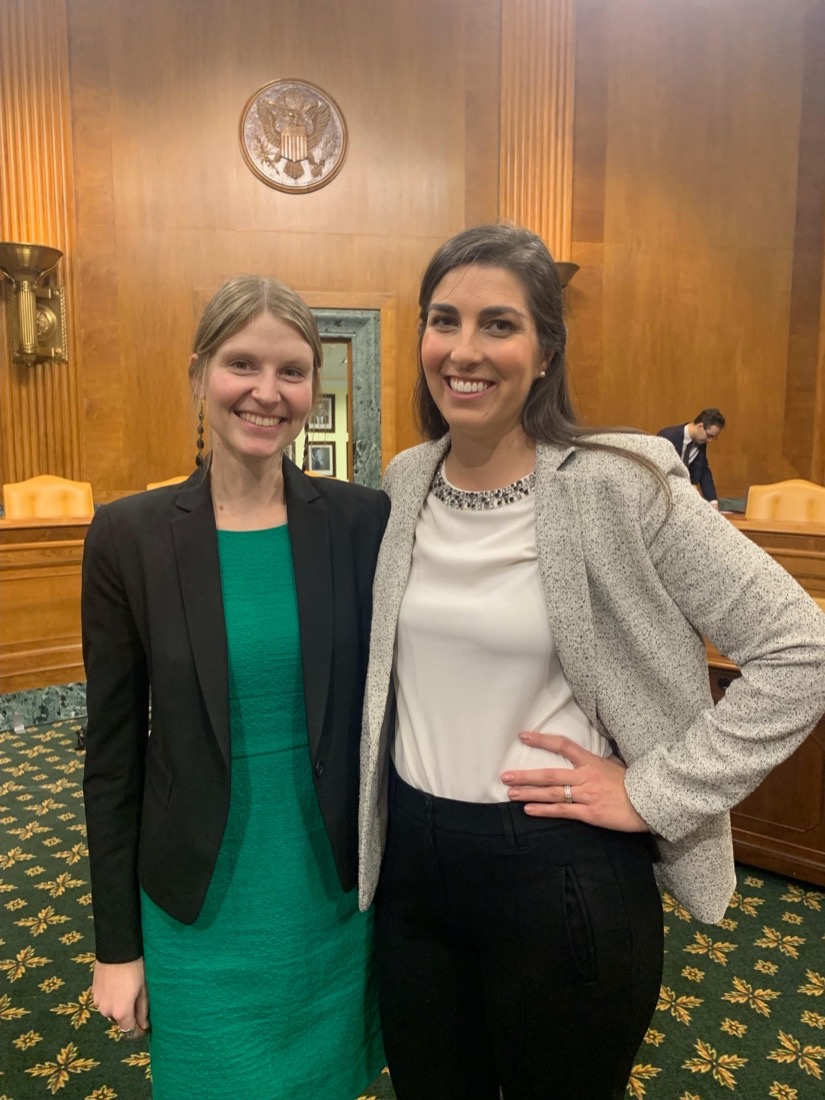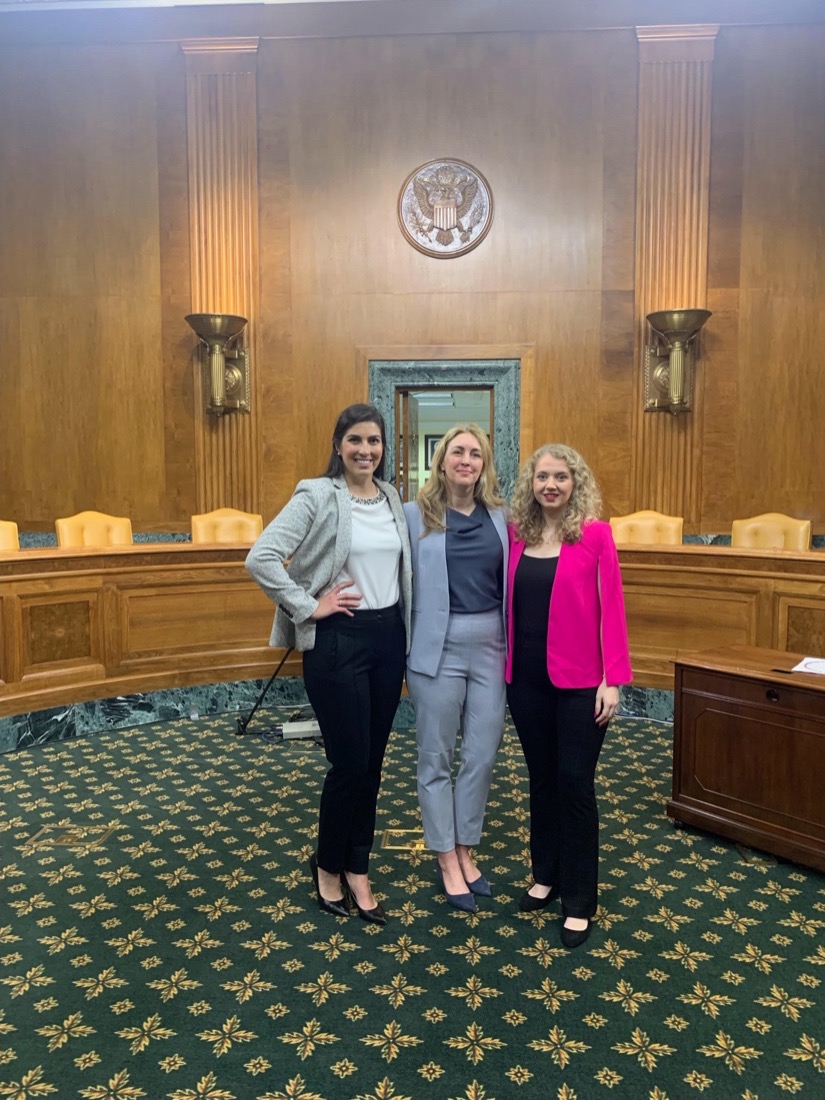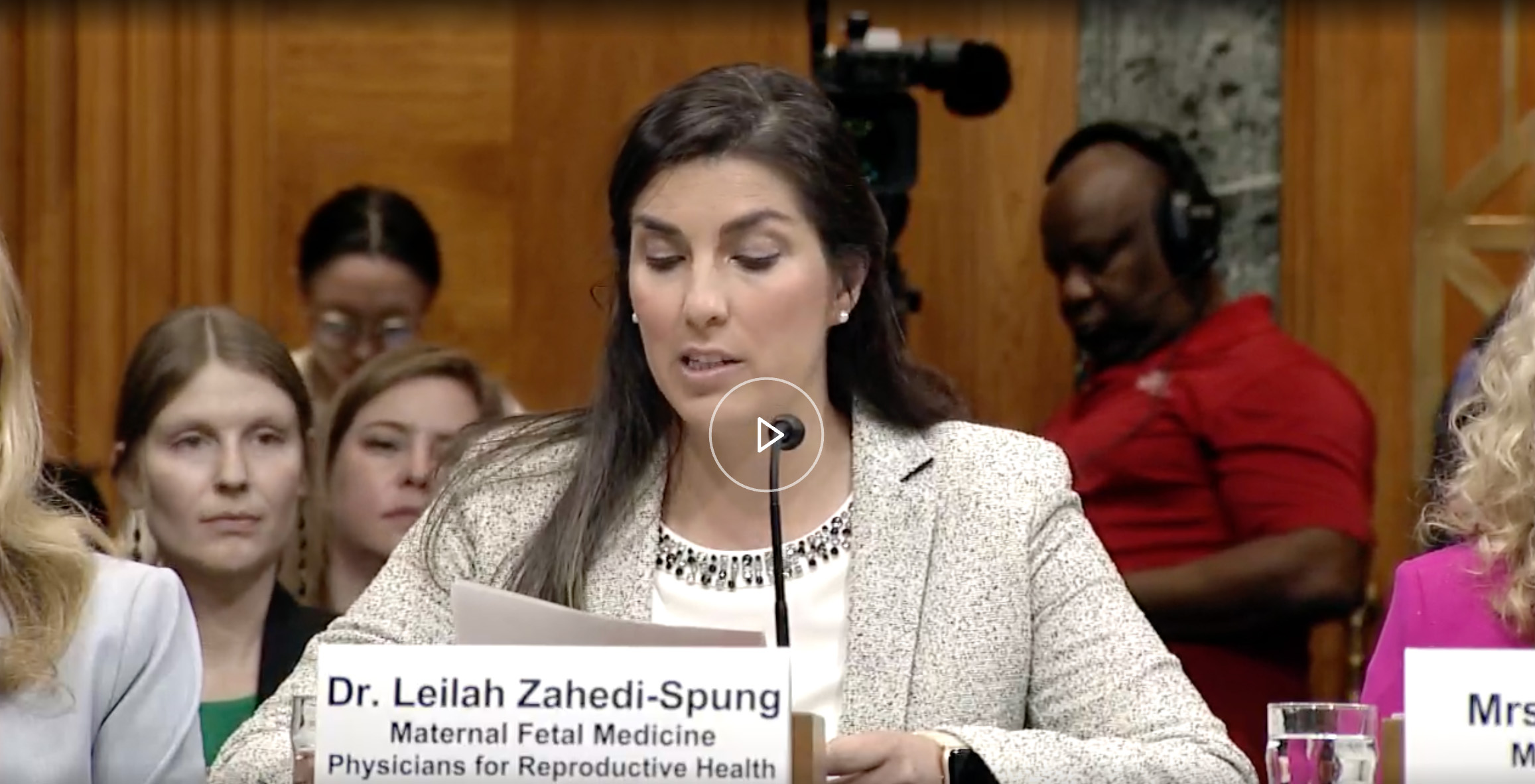Let’s be very clear on something; abortion access is about more than what happens at an appointment (if the patient can even get to an appointment). Abortions are essential, life-saving care. Care that allows birthing people to make informed, confident decisions about their bodies, families, and futures. One overlooked facet of abortion access is its socioeconomic impact on individuals and families.
Terms like “pro-family” and “pro-woman” echo constantly in discussions about abortion access, yet their true meaning remains elusive. The question of who embodies “pro-family” principles was a constant discussion point during the February 28th Senate Budget Committee hearing on reproductive freedom.
Last week, Colorado-based PRH Fellow and Maternal Fetal Medicine specialist Dr. Leilah Zahedi-Spung outlined the intricacies of reproductive health care access and its profound economic implications.
In her opening testimony, Dr. Zahedi-Spung spoke of how the Dobbs decision has impacted her ability to provide care to patients in Tennessee, ultimately forcing her to uproot her family to Colorado.

“Following the Supreme Court’s decision, Tennessee’s abortion ban – one of the most extreme abortion bans in the country – went into effect. This ban did not have any exceptions, not even for life-threatening emergencies. Providers who performed abortions in Tennessee under the state’s law at the time would be subject to severe criminal penalties, and while a physician who was charged with a felony could argue after the fact that the abortion was necessary to save someone’s life, this was an entirely untenable situation pitting physicians like myself and patients against each other. It became clear very quickly that I could no longer provide the care that my patients needed and deserved without facing significant risks to both myself and my family. In one of the hardest decisions I have ever had to make, my family and I decided to move, once again, to Colorado.
With just her opening testimony, Dr. Zahedi-Spung illuminated the communal impact of abortion restrictions and how access limitations are reshaping our health care landscape. As abortion bans increase, so does provider migration, leaving the most disenfranchised communities isolated and without adequate care and resources. While practicing in Colorado, she sees many patients travel from all over the country for life-saving care.
“As states continue to ban abortion, patients are having to travel farther and farther distances away from their homes and their communities putting not only their health and lives at risk but also their economic well-being. I am consistently seeing patients from across the country, from the southwest, Midwest, and southeast. And while I am grateful to be able to care for these people who have made it to us, I can’t help but think about all of the people we know who have been forced to remain pregnant and don’t have the means and resources to pay for the travel, child care, additional time off from work, or keep up with the increased costs as they are pushed later and later into pregnancy.”
Additionally, Dr. Zahedi-Spung urged the committee that we are living through more health and economic consequences, with many more on the horizon;
“Studies have shown us that people who are denied an abortion are more likely to fall into poverty, increase their amount of debt, and generally have worse financial security for years following their abortion denial. Inability to access abortion also has severe consequences for a person’s career, limiting educational attainment, labor force participation, and the ability to access higher paying jobs, and this is especially true for Black, Indigenous, people of color who face systemic racism in all aspects of their lives.”
 During the hearing, many anti-abortion lawmakers advocated for the reform of government programs that support low-income families, touting that abortions are not the solution to financial hardships. While government programs can offer short-term relief, we know that historically government assistance programs do little to address systemic economic inequities. Not to mention, the process of applying for and maintaining these benefits is long, complex, and inaccessible. Alongside activist and mother, Mrs. Allie Phillips, and Economics Professor at Middlebury College, Dr. Caitlin Myers, these three ladies discussed the financial burdens of abortion restrictions and the disproportionate impact these burdens have on people with identities on the margins of oppression.
During the hearing, many anti-abortion lawmakers advocated for the reform of government programs that support low-income families, touting that abortions are not the solution to financial hardships. While government programs can offer short-term relief, we know that historically government assistance programs do little to address systemic economic inequities. Not to mention, the process of applying for and maintaining these benefits is long, complex, and inaccessible. Alongside activist and mother, Mrs. Allie Phillips, and Economics Professor at Middlebury College, Dr. Caitlin Myers, these three ladies discussed the financial burdens of abortion restrictions and the disproportionate impact these burdens have on people with identities on the margins of oppression.
In Dr. Meyer’s testimony, she shared her reflections, not as an activist, but as a scientist dedicated to assessing reproductive policy as economic policy. In her testimony, she highlighted some of the financial implications of abortion restrictions;
“The group that was turned away from a wanted abortion experienced a 78% increase in past-due debt and an 81% increase in adverse credit events like evictions and bankruptcies relative to women who obtained the abortion they were seeking. Now with the Dobbs decision and ensuing abortion bans, many more women are faced with obstacles to obtaining abortions. At present 14 states are enforcing near-total abortion bans, impacting nearly a quarter of American women by increasing their travel distance to the nearest provider. The average affected woman now faces a journey of more than 300 miles one-way.
Mrs. Phillips spoke about the isolating experience she had traveling for her abortion, saying that without mutual aid, she would not have made it to her procedure.
“As a low-income family, I was a single mom for the first three years of my daughter’s life. I started the in-home daycare to be at home with my daughter. Without my online platform and complete strangers’ help, I would not have made it to NY.”
Despite Mrs. Phillips’ privilege and community, even she experienced significant barriers to accessing the care she needed, a persistent theme since the overturning of Roe. She asked the committee to remember her experience, as she is just one of thousands of people who need this essential care.
To close, Dr. Zahedi-Spung closed shared the impact abortion restrictions will have on the providers, both emerging and tenured;
“I am a physician, not a lawyer. I did 11 years of training to become a doctor and trust my own clinical gestalt…and then a law went into effect that took my ability care for my patients in a way that was necessary away from me, and from so many others.
I had a hematologist call me and ask if he could give chemotherapy to a breast cancer patient who he had just found out was pregnant, because he was worried that if he did and she miscarried, he would go to jail…for taking care of his patient. It was — it is still terrifying. We navigate this on a regular basis with patients who are coming to us with very complex care needs.”
Last week’s Senate Hearing emphasized the devastating consequences of limiting abortion access, with significant socioeconomic impacts on families and threats to our health care system’s sustainability. Currently, we are seeing drastic health care changes like the Alabama Supreme Court, declaring embryos from in vitro fertilization as children. As we anticipate more abortion restrictions, the effects on our health care landscape underscore the need for comprehensive advocacy to safeguard both individual well-being and the integrity of our health care system.
Thank you for tuning in to another recap of the hard work PRH physician advocates do to share the reality of accessing abortion care in the US right now. Thanks to these advocates, politicians can make fewer excuses around why they perpetuate so much misinformation and stigma around abortion care. These medical experts show up to call on politicians to do better than that.
Mani Vinson, Communications Coordinator

